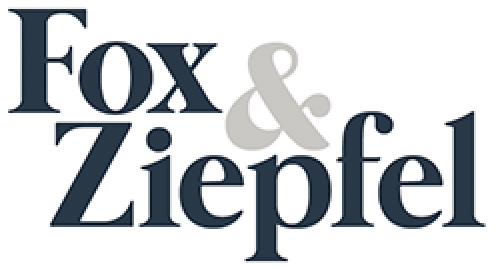Ohio House Bill 315 (HB 315) brings sweeping changes that impact not just townships, but municipalities, county governments, and port authorities across the state.
Signed into law by Governor DeWine on January 2, 2025, this legislation includes updates to sunshine law compliance, brownfield remediation grants, taxation, zoning, and more. With major provisions set to take effect soon, local governments and economic development professionals should start preparing now.
Key Effective dates
- January 2, 2025 – Appropriations provisions took effect immediately.
- April 3, 2025 – The majority of HB 315’s provisions become law.
- July 1, 2025 – Legislative changes to the Brownfield Remediation Program (BRP) and other select provisions take effect.
Let’s break down the most critical changes affecting Ohio’s local governments.
A. Managing Sunshine Laws Compliance Costs for Law Enforcement Video Requests (Effective April 3, 2025)
Starting April 3, 2025, law enforcement agencies can charge up to $75 per hour (capped at $750 per video) for processing public video record requests (e.g., body camera footage, surveillance videos). Costs may include retrieval, review, redaction, production, and storage.
Key Takeaways
Estimated Cost Breakdown for Video Requests
Let’s break down the most critical changes affecting Ohio’s local governments.
- Multiple Videos, Higher Costs – If a requester asks for multiple videos (e.g., multiple officers’ body cams, dash cams, or multi-location events), the total cost could exceed $750.
- Prepayment Allowed – Agencies can require requesters to pay an estimated cost upfront before work begins.
- 5-Day Cost Estimate Requirement – Upon receiving a request, agencies must provide a cost estimate within five business days.
- Final Cost Adjustments – If actual costs exceed the estimate, the agency can charge up to 20% more, but total costs cannot exceed $750 per video.
For what it’s worth, here’s an example of a form I can imagine Ohio local governments soon using to forecast estimated costs, particularly when projects are likely to reach or exceed the $750 cap:
By allowing agencies to recover compliance costs, HB 315 attempts to balance public access with the operational demands on law enforcement agencies.
B. Expanding Brownfield Remediation Grants (Effective July 1, 2025)
HB 315 eliminates the previous “county lead entity” requirement, broadening eligibility for brownfield remediation funding to counties, townships, municipal corporations, port authorities, conservancy districts, park districts, land banks, and for-profit organizations.
What's changed?
- Private Developers Now Eligible – For-profit entities can directly apply for and receive BRP grants without a public entity as an intermediary.
- Greater Local Flexibility – Counties no longer must serve as primary grant recipients, allowing townships, municipalities, and private businesses to spearhead cleanup projects.
- Up to 100% Project Coverage – HB 315 removes the previous rule limiting grants to 75% of a project’s total cost, meaning projects could now be fully funded if grant money is available.
This change is expected to accelerate the cleanup and redevelopment of contaminated sites across Ohio, encouraging economic development and community revitalization.
C. AED Requirements for Sports Facilities
Previously, Ohio law required Automated External Defibrillators (“AEDs”) at all city- and county-operated sports facilities. HB 315 clarifies that AEDs are only required during organized youth sports activities.
Who Must Provide AEDs?
- If a local government owns the facility, an AED must be available whenever an organized youth sports event is held, even if a private league or community group is hosting the event.
- If a private facility hosts a government-organized youth sports event, the facility owner is responsible for providing an AED.
The General Assembly’s hope, I imagine, is that this legislative update simultaneously reduces costs for local governments while ensuring AED availability during youth sporting events.
D. Major Township Governance Updates
While HB 315 impacts various political subdivisions, several key provisions focus specifically on townships:
- Township Tax Increment Financing (TIF) – Pre-2006 TIF districts can be extended for up to 15 additional years, provided the tax exemption percentage remains unchanged.
- Public Safety Ticket Charge – Townships can impose a $1 per ticket fee at certain venues to fund police, fire, and EMS services (excludes county fairgrounds and events where tickets are $10 or less).
- Digital Public Notices – Townships can now publish legal notices on their website or social media instead of using traditional newspaper ads.
- Zoning Enforcement Strengthened – A civil enforcement process allows townships to collect zoning violation fines through local courts, with daily penalties accruing until compliance.
- Fire Equipment Purchases – Townships no longer need county prosecutor approval for fire-related equipment purchases.
- Town Hall and Infrastructure Investments – Townships can now use general funds (not just road funds) for infrastructure maintenance and no longer need voter approval for town hall improvements over $75,000.
- Historic Preservation Commissions – Townships may establish commissions to protect historic properties, but trustees retain final authority.
These changes increase township autonomy and flexibility in handling funding, infrastructure, and regulatory matters.
E. Indigent Burial Fund Reinstated
HB 315 restores the Indigent Burial Fund with a $1 million allocation to help local governments cover burial and cremation costs for indigent individuals.
Final Thoughts:
Preparing for HB 315
With key provisions taking effect soon, elected officials, law enforcement agencies, and economic development professionals must prepare now to comply with the new requirements and take advantage of funding opportunities.
Need guidance? Fox & Ziepfel, LLC’s public law team is available to help local governments navigate compliance and funding strategies under HB 315. Contact our team today to discuss how these updates impact your community.


